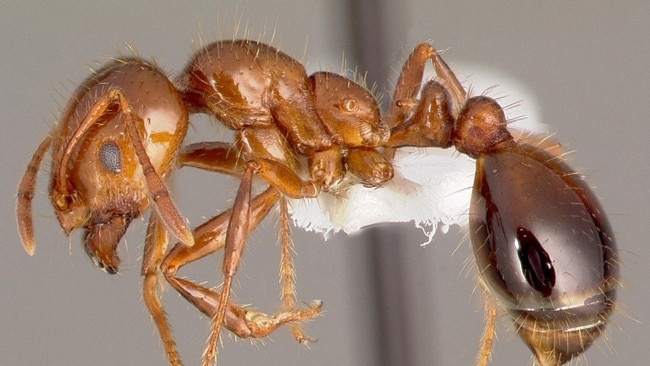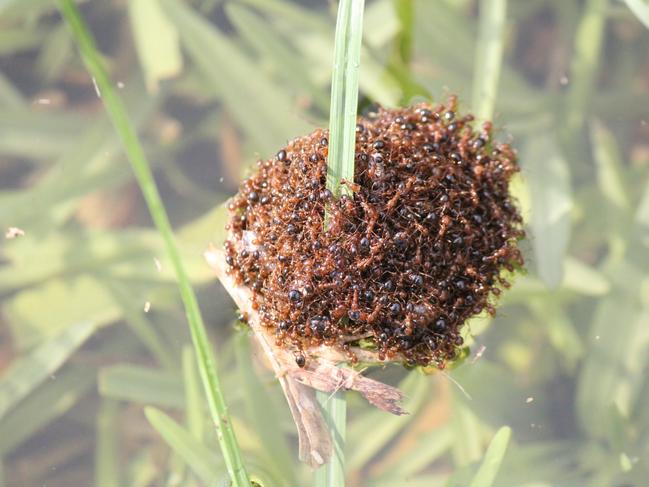Funding review needed to halt the fire ant march, experts say
A federal inquiry warned the government to take the threat of fire ants seriously or it would come back to bite us. Experts say the Albanese government’s response is extremely disappointing.

Invasive species experts and the federal opposition say the Albanese government’s response to a Senate inquiry into the spread of fire ants falls well short of what is required to eradicate the pest that threatens to upend agriculture in the country.
The inquiry, which finished in April, identified significant shortcomings with the government response to the ants, which have been spreading through southeast Queensland for the past two decades, threatening agriculture businesses and outdoor lifestyles.
But the government’s response this week did not support four of the committee’s 10 recommendations and has pushed back a review of funding arrangements until late next year.
Experts say the government’s response is disappointing and overlooks several of the key recommendations of the Senate committee.
Invasive Species Council advocacy manager Reece Pianta said the federal government had delayed necessary increased funding for the eradication program until after the election.
“The evidence at the Senate inquiry was clear that the current level of resourcing is not sufficient to eradicate this super pest,” said Invasive Species Council advocacy manager Reece Pianta.
“This was an opportunity for the government to ensure fire ant eradication was on track,” he said.
“Instead, they hit the pause button until after the next federal election at the end of 2025. This is extremely disappointing.”
An extra $593m in state and federal funding was announced last year but experts say more is needed.
The government also did not accept a recommendation to bolster its fire ant suppression program.
“This shows they’ve failed to grasp the urgency of scaling up suppression work,” Mr Pianta said.
“Right now numbers are skyrocketing due to a lack of personnel, bait and equipment for suppression.”
Fire ants pack a severe sting that can be fatal and form massive colonies that can harm livestock and destroy crops.
Native to South America, the ants had previously been contained in Queensland but colonies were discovered in northern NSW last year, and there are fears they will enter the tributaries of the Murray Darling River system and spread rapidly through western NSW and Victoria.

Modelling has shown the ants could cost the economy $2bn a year if allowed to spread and require 650,000 medical appointments a year to treat stings.
Nationals leader David Littleproud said the government’s delays in reviewing funding had allowed the ants to spread further.
“Now Labor is acting as if it’s business as usual, even though outliers have been found in the ranges and in NSW and fire ants have been spreading,” Mr Littleproud said.
“Labor’s funding was needed urgently for the 2023-2027 response plan, but was delayed until the end of 2023, which put the time-critical response at risk.
“The lack of action and the delays in funding undermine previous work that had been done under the Coalition government to control fire ants.
“Labor must now get cracking and actually take action, not waste another six months.”




To join the conversation, please log in. Don't have an account? Register
Join the conversation, you are commenting as Logout